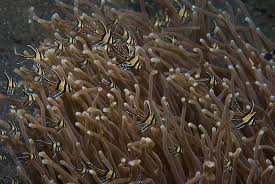
In the vast historical and socio-political landscape of China, families have played a pivotal role in shaping the trajectory of leadership, politics, and governance. Throughout the centuries, Chinese families, particularly those from the aristocracy, military elite, and influential business backgrounds, have been responsible for nurturing and developing future generations of leaders. This article explores how family dynamics, education, and inheritance of leadership responsibilities have contributed to the training of political and economic leaders in China.
1. The Historical Role of Families in Leadership Training
Historically, China has been characterized by a strong patriarchal system where family and lineage were central to social, political, and economic stability. The role of the family in shaping leadership can be traced back to ancient times, particularly in the context of dynastic rule. Confucian values, which emphasized filial piety, respect for hierarchy, and the importance of moral integrity, were deeply embedded in Chinese society, and these principles played a crucial role in the training of future leaders.
Confucianism stressed the idea of moral leadership, where those in power were expected to lead with wisdom, compassion, and self-discipline. In many instances, it was the responsibility of the family—especially the elders—to impart these values to the younger generations. This education in leadership was not just theoretical but practical, as families often held power, governed territories, or maintained large estates, providing real-world leadership experience.
2. The Imperial Examination System and Family Influence
One of the most significant ways in which families influenced leadership training in China was through the imperial examination system. This system, which began during the Tang Dynasty (618-907 CE) and was fully established in the Song Dynasty (960-1279 CE), was a method of selecting candidates for government positions based on merit rather than birthright. The examination was designed to ensure that those in positions of leadership were knowledgeable and skilled, particularly in Confucian teachings.
However, despite its meritocratic ideals, the imperial examination system did not entirely erase the influence of family connections. The cost of education and the need for specialized tutors meant that families from wealthier or aristocratic backgrounds had an advantage in preparing their children for the exams. Families that had access to resources could afford the best teachers and tutors, as well as the books and study materials necessary to succeed.
Furthermore, prominent families often maintained educational traditions that were passed down through generations. These families were deeply involved in the political machinery of their time, and their involvement in governance ensured that the younger generations received both formal and informal training in leadership. This system helped perpetuate a cycle of leadership training, where the children of powerful families had an intrinsic advantage in attaining positions of political authority.
3. Dynastic Power and Leadership Inheritance
China’s dynastic system, which lasted for thousands of years, was fundamentally based on family rule. In dynastic China, leadership was often passed down through the male line of descent, ensuring that power remained concentrated within certain families. The training of future emperors, generals, and political leaders was thus largely an affair of the family. The education of royal and noble children was not just academic but deeply embedded in governance and statecraft.
The emperor’s children, for instance, were often groomed from a young age to inherit the throne and lead the empire. Their education was extensive, covering areas such as diplomacy, military strategy, governance, and cultural affairs. These children were also trained in Confucian thought, which emphasized ethical leadership, the importance of the ruler’s moral character, and the need for self-restraint.
Powerful families within the nobility also maintained large estates and military forces, training their children to manage resources and lead armies. These families passed down leadership roles and responsibilities, ensuring the continuity of power within their bloodlines. While the concept of leadership was heavily influenced by Confucianism and the need for moral integrity, the dynastic system nevertheless relied heavily on bloodlines to maintain political control.
4. Family and Political Leadership in the Modern Era
With the collapse of the imperial system in 1912 and the establishment of the Republic of China, the role of families in political leadership underwent significant changes. The fall of the Qing Dynasty ended the traditional dynastic system of leadership inheritance. However, families continued to play a central role in shaping political leaders, particularly in the early years of the Republic.
In the Republican era, the wealthy and influential families who controlled vast industries, businesses, and political organizations still had significant influence over the country’s leadership. Political leaders in the early 20th century, such as Sun Yat-sen and Chiang Kai-shek, were often closely linked to powerful families, and political power was still concentrated in the hands of a few elites. These families controlled not only political offices but also the financial and military resources necessary to maintain authority.
As the Communist Party of China (CPC) rose to power in 1949, the training of leadership shifted from family-based systems to party-controlled education and structures. Despite the official ideology that sought to diminish the role of families in leadership, the influence of family connections remained strong in the communist regime. Political elites, particularly within the party, continued to ensure that their children and relatives received specialized education in politics and leadership.
The Children of Revolutionaries, as they came to be known, enjoyed certain privileges, such as access to elite universities, influential political mentors, and positions of power. In this context, family networks continued to provide an avenue for training and promoting political leadership. The role of families in shaping the leadership of the People’s Republic of China became more indirect, but still crucial.
5. Education and the Development of Future Political Leaders
Education remains one of the most important factors in the training of political leaders in China. While the imperial examination system has long been abolished, the Chinese education system still places a strong emphasis on academic achievement and moral education. China’s elite universities, such as Tsinghua University and Peking University, have long been seen as breeding grounds for future leaders.
In the modern era, families continue to play an integral role in ensuring that their children receive the best possible education. Elite families invest heavily in their children’s education, sending them abroad to study or enrolling them in prestigious domestic institutions. The goal is not only academic success but also the development of leadership skills. Connections with influential professors, mentors, and politicians are often crucial to securing high-level positions.
The rise of “princelings,” or the children of senior Communist Party leaders, highlights the continued importance of family connections in the development of future political leaders. These individuals, who often attend the best universities and gain experience in both government and business, are positioned to take on leadership roles in China’s future. While the official narrative of the Chinese Communist Party emphasizes merit and revolutionary ideals, the reality is that family connections still play a crucial role in shaping the future of political leadership.
6. Family Networks and Political Influence
The concept of guanxi (关系), or networks of relationships, is crucial to understanding how family plays a role in the training of leadership in China. Guanxi refers to the intricate web of personal relationships that individuals use to gain access to resources, opportunities, and political power. Families in China often build extensive guanxi networks, connecting their children to influential people in business, politics, and academia.
These networks are vital for career advancement, and they serve as an unofficial means of training future leaders. By being part of powerful family networks, the children of elites are often able to gain access to important opportunities, such as internships, mentorships, and political appointments. These connections facilitate the development of leadership skills by providing young individuals with the right resources, experiences, and social capital to rise to prominence.
Guanxi networks also contribute to the training of future leaders by encouraging collaboration and mutual support. Families within the political elite often work together to promote the interests of their children, ensuring that they have the necessary tools and connections to succeed in leadership positions.
7. The Role of Families in Shaping Leadership Ideals
While the educational and political systems in China have evolved significantly over time, one constant has been the role of families in shaping leadership ideals. In many powerful families, there is a long-standing tradition of fostering moral and ethical values that are seen as essential for good governance. These values often align with Confucian ideals of virtuous leadership, where a ruler’s success is closely tied to their moral character and sense of responsibility.
Parents and elders in influential families often serve as role models, imparting their experiences and teachings to the younger generation. In this way, leadership is seen as not just a political position but a moral responsibility that requires wisdom, foresight, and a deep commitment to the welfare of the people. This tradition has contributed to the development of strong leadership in China, both in terms of political and economic leadership.
8. Conclusion: The Continuing Role of Families in Leadership Training
The relationship between families and the training of leadership generations in China is both historical and contemporary. From the dynastic era to the modern Communist Party, families have played a crucial role in the development and training of political leaders. Whether through direct control of education, the inheritance of leadership roles, or the establishment of powerful guanxi networks, families have ensured the continuity of leadership in China.
While China’s political system has evolved over time, the role of families in shaping leadership remains a cornerstone of the country’s political landscape. The ongoing relationship between family, education, and political power continues to influence the training of the next generation of leaders in China. As the country continues to grow and evolve, the role of families in leadership development will remain central to its future.









